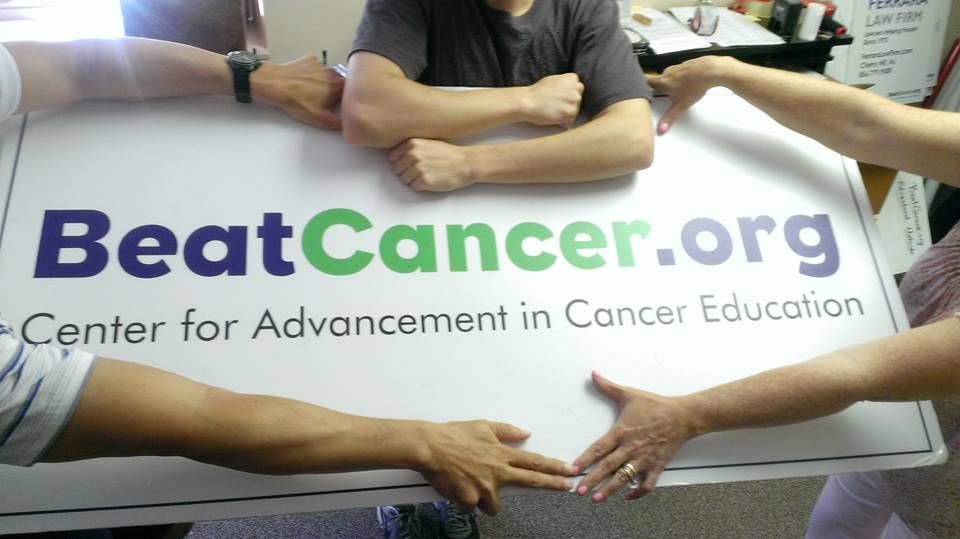
In 1889, English surgeon Dr. Stephen Paget published his “seed and the soil hypothesis,” noting that the likelihood of cancer to spread depends on its environment (The Lancet, 133, no. 3421). Similarly, T. Colin Campbell compared the three stages of tumor growth – initiation, promotion and progression – to the growth of weeds. Initiation is the phase when a seed settles in the soil, promotion is the phase when the seed becomes a plant, progression is the phase when the plant becomes a weed, growing beyond control, invading flower beds and pushing up through the sidewalk. In The China Study, Campbell states:
“Promotion is reversible, depending on whether the early cancer growth is given the right conditions in which to grow. This is where dietary factors are so important.”
Ultimately, the best way to prevent cancer recurrence or to keep it from growing is to provide an inhospitable  environment – an internal milieu that is unfriendly to cancer. (The term was first coined by 19th century French physiologist Claude Bernard). There was a classic debate between Bernard and the famous microbiologist Louis Pasteur about the best approach to controlling malaria. Pasteur said it was important to kill all the mosquitos, but Bernard said it was better to drain the swamp. Pasteur got all the glory with his germ theory that led to Pasteurization and antibiotics, but on his deathbed he admitted to Bernard, “You were right – the terrain is everything.”
environment – an internal milieu that is unfriendly to cancer. (The term was first coined by 19th century French physiologist Claude Bernard). There was a classic debate between Bernard and the famous microbiologist Louis Pasteur about the best approach to controlling malaria. Pasteur said it was important to kill all the mosquitos, but Bernard said it was better to drain the swamp. Pasteur got all the glory with his germ theory that led to Pasteurization and antibiotics, but on his deathbed he admitted to Bernard, “You were right – the terrain is everything.”
Cancer treatment is similar – should our goal be to kill every last cancer cell (very difficult because the body is producing new ones all the time – they just don’t all become tumors)? Or do we primarily focus on changing the breeding ground? While oncologists are doing their job to get rid of every last cancer cell – and especially if they fail – we have to do our job: We should be looking at our biological terrain.
 Many scientists have validated the point of view that cancer cells and normal healthy cells cannot thrive in the same environment. In 1931, Nobel prize winner Dr. Otto Warburg discovered that cancer cells need a low oxygen, acid environment with plenty of sugar. Unlike normal cells that burn oxygen and glucose for energy, cancer cells burn only glucose. Sir William A. Lane, former royal surgeon of London, stated:
Many scientists have validated the point of view that cancer cells and normal healthy cells cannot thrive in the same environment. In 1931, Nobel prize winner Dr. Otto Warburg discovered that cancer cells need a low oxygen, acid environment with plenty of sugar. Unlike normal cells that burn oxygen and glucose for energy, cancer cells burn only glucose. Sir William A. Lane, former royal surgeon of London, stated:
“Cancerous cells will only grow in a suitable soil, and that soil is provided by the prolonged action of toxins in the tissues.”
So how do you grow a cancerous tumor? You feed it plenty of sugar, fat, and growth hormones. You make sure that the soil is depleted of minerals, enzymes, oxygen, antioxidants, fiber, water and immune-boosting cells; soil that is very acid from years of exposure to animals but no plants; soil that is filled with free radicals from environmental toxins and stress. And make sure the soil has poor drainage so there is plenty of sewage and sludge. That’s how to grow cancer.
And how do you change your biological terrain? Eat TONS of fresh fruits and veggies (10-15 servings per day). They are low in protein, fat and sugar, and full of alkalinity, minerals, enzymes, fiber, phytonutrients, antioxidants, and water. Drink half your weight in ounces of pure water each day. Breathe deeply and fill your lungs with oxygen daily. Manage stress. That’s a health-promoting terrain, which we have been promoting at the Center for Advancement in Cancer Education for more than three decades!

Dr. Susan Silberstein has had a lifetime of service educating people about cancer prevention through diet and lifestyle change. She founded the organization BeatCancer.org-The Center for Advancement in Cancer Education in 1977, after the death of her young husband from cancer. She is also the editor of Immune Perspectives magazine, the creator of the video Breast Cancer: The Diet Connection and the founder of Philadelphia’s annual Food & Health Expo.
Her organization, now in its 39th year, is dedicated to providing cancer prevention education across the U.S. and internationally through speaking  engagements, cancer counseling, youth counseling, webinars, a special Breast Cancer program and on the BeatCancer.org blog, where Dr. Silberstein as well as a host of other health experts, including myself, publish regularly.
engagements, cancer counseling, youth counseling, webinars, a special Breast Cancer program and on the BeatCancer.org blog, where Dr. Silberstein as well as a host of other health experts, including myself, publish regularly.
Dr. Silberstein is particularly passionate about how dietary change can help prevent and heal cancer. She notes in the introduction of her well-documented and highly informative book Kitchen Chemotherapy that “according to the United States National Cancer Institute, up to 70% of all cancer deaths are avoidable through dietary change.” The following was an excerpt from that book where Dr. Silberstein discusses the concept of cancer and biological terrain.
Learn more from the top healers and doctors in the world via our latest Survive & Thrive online program!